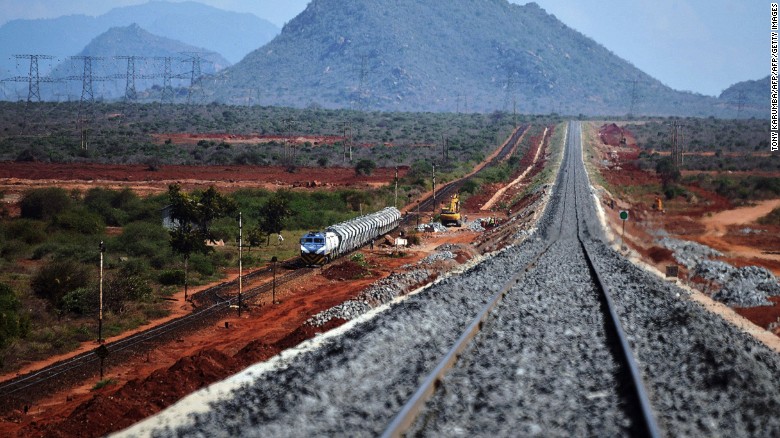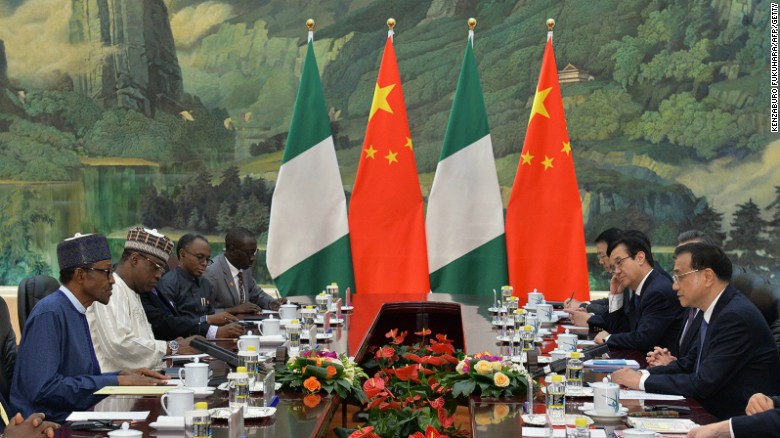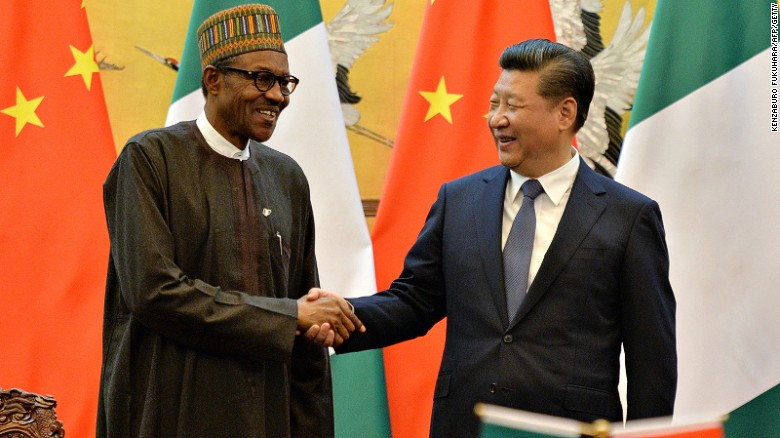This is what Africans really think of the Chinese
Increasing Chinese investment in everything from small food enterprises to massive railway projects across Africa has drawn criticism and warnings of a future dependency on Asia's superpower.
But what do Africans themselves think about Chinese investors? Turns out, they love them.
According to a recent report by Afrobarometer, almost two-thirds (63%) of Africans say China's influence is somewhat positive or very positive, while only 15% see it as somewhat or very negative.
"There is a negative narrative of China in Africa," says Anyway Chingwete, co-author of the study and project manager at Afrobarometer and the Institute for Justice and Reconciliation in Cape Town, South Africa.
"But I believe ordinary citizens have a positive sentiment because of the contribution China has made to Africa."
The attitudes vary from country to country, with people in Mali (92%), Niger (84%), and Liberia (81%) being particularly glad to have them around.
"This shows that African citizens are welcoming China's involvement," Chingwete adds.
Show me the money
It appears it's not the Chinese culture or language Africans like best. It's the potential financial investment China brings.
When asked which factors contributed most to China's positive image, it was investment in infrastructure that came out on top.
China invests more in Africa than any other country, with Ethiopia, Kenya, Tanzania and Angola among the biggest recipients of Chinese funds.
Infrastructure development, for example highways and railways, is the main area of business for the Chinese in Africa, Chingwete says. They also invest in smaller enterprises and food outlets, according to the report.
Africans also like the Chinese for bringing affordable cars and mobile phones to the continent, says lead author Mogopodi Lekorwe, a professor of Politics at the University of Botswana.
"They used to be very expensive, but because these are now flooding the market, the prices have dropped.
"People can now pick and choose among things that they didn't have access to in the past," he adds.
But the Chinese are not the only ones looking to do business with African countries. Colonial powers still have an influence, particularly in Francophone countries, Lekorwe says.
However, this influence appears to be waning in some countries, says Chingwete.
"Of the largest players in Africa, China and the U.S. are the main countries."
United States versus China in the race for Africa
Some African countries now prefer the Chinese development model to that of the US and former European colonial powers, the study revealed.
When asked which country would be the best model for the future development of their country, 24% of Africans picked China.
However, across all countries surveyed, the US still came out on top, with nearly a third (30%) of all respondents preferring it.
About one in 10 respondents prefer their former colonial power (13%) or South Africa (11%).
At a closer look, this varies greatly from country to country. Out of the 36 countries surveyed, people from 10 countries were particularly keen on the Chinese development model, with Cameroon, Sudan and Mozambique being the top three.
On the flipside, Liberia, Cape Verde, Kenya, Nigeria, Ghana, South Africa and Morocco all put the American model above the Chinese.
Some former French colonies said they preferred the French model.
"In Tunisia, Benin, Mauritius and Burkina Faso, for example, there is still some level of influence from France which they find positive, and so they choose France's development model," Chingwete says.
South Africa scored particularly high in neighboring countries such as Lesotho, Zambia, Zimbabwe and Malawi.
Poor quality products?
It's not all rosy, however. Negative opinions of China are present among Africans too, with some saying that Chinese products weren't always of the highest quality.
They are also afraid of losing jobs to the Chinese, and some say they can't compete with the Chinese work ethic, Lekorwe says.
"The Chinese are available 24 hours to do work, whereas a local will say: 'Look, I have a family here.'"
"That's some of the things that people have been complaining about, but they certainly do have a positive image overall."

Kenya's new $13bn railway was funded by China.
China's global image
Globally, the attitude towards China is somewhat positive, according to a 2014 study by Pew Global.
Across the 43 nations surveyed by Pew, a median of 49% expressed a favorable view of China, compared to 32% thinking of them unfavorably.
However, China's overall image in Europe and the U.S. was mostly negative. Only 35% of Americans had a positive view of China, whereas 55% were negative.
A future China - Africa superpower?

Nigerian President Muhammadu Buhari has dinner with Chinese President Xi Jinping in Beijing in April 2016.
The U.S. and China are competing fiercely over African business, says Lekorwe.
"I think the Chinese do everything they possibly can to become number one," he says.
"They want to become the number one superpower."
However, an increased Chinese influence over Africa may cause trouble in the future, and perhaps stifle the development of democracy, Lekorwe says.
News Courtesy: www.cnn.com











